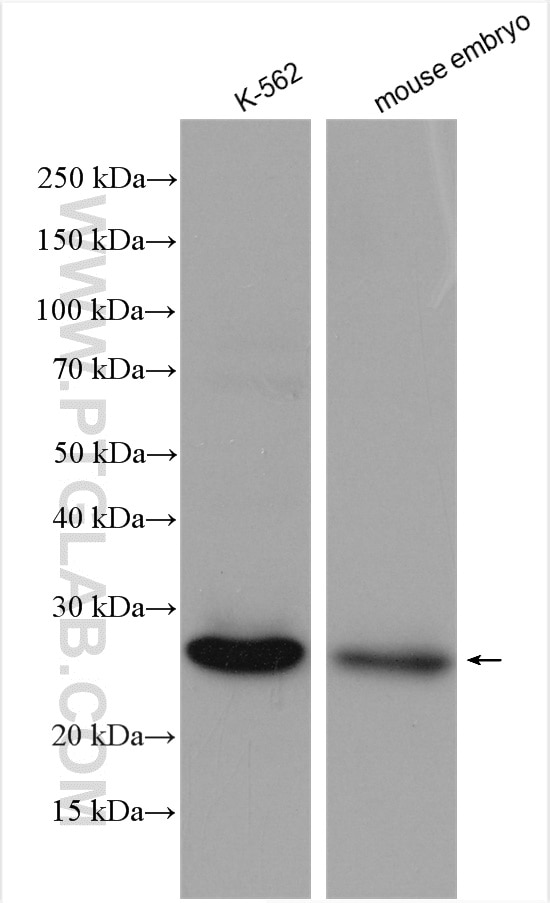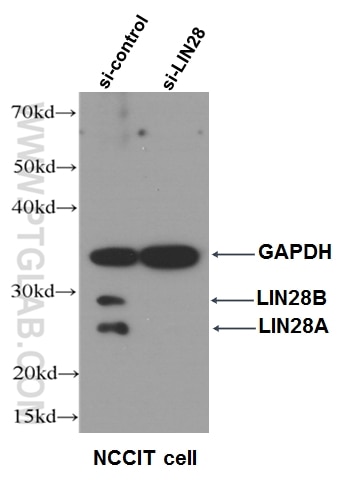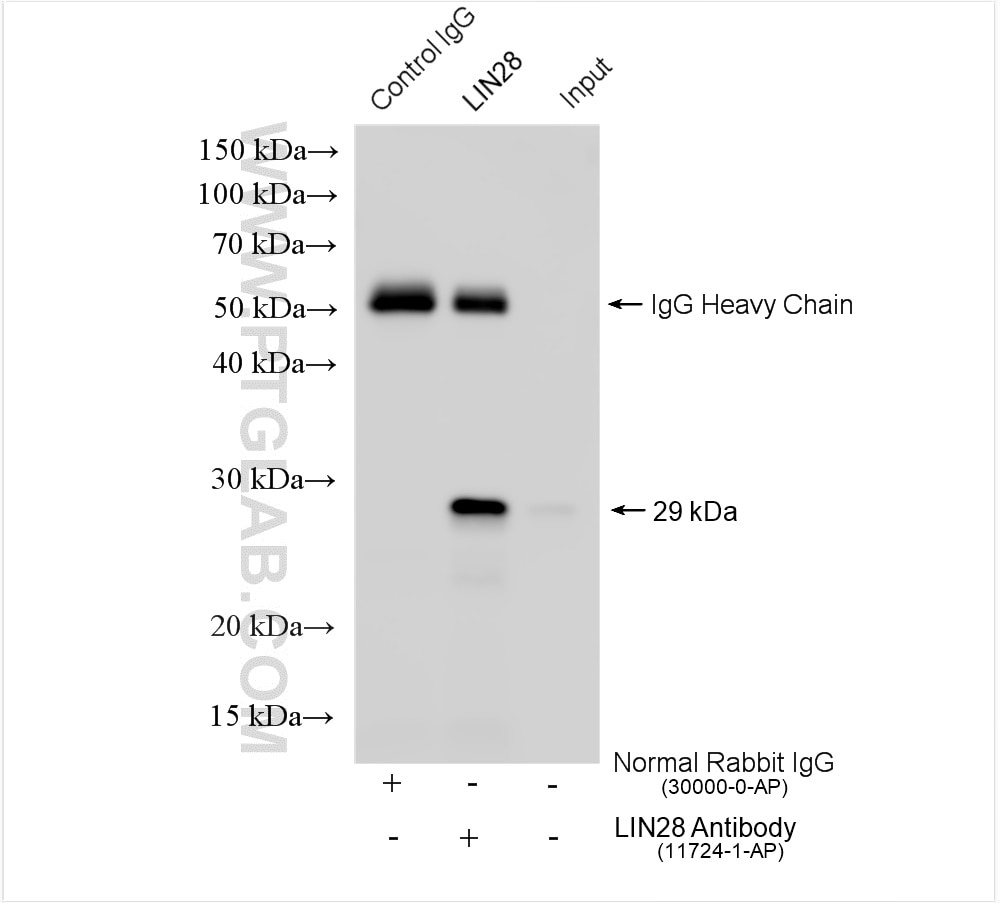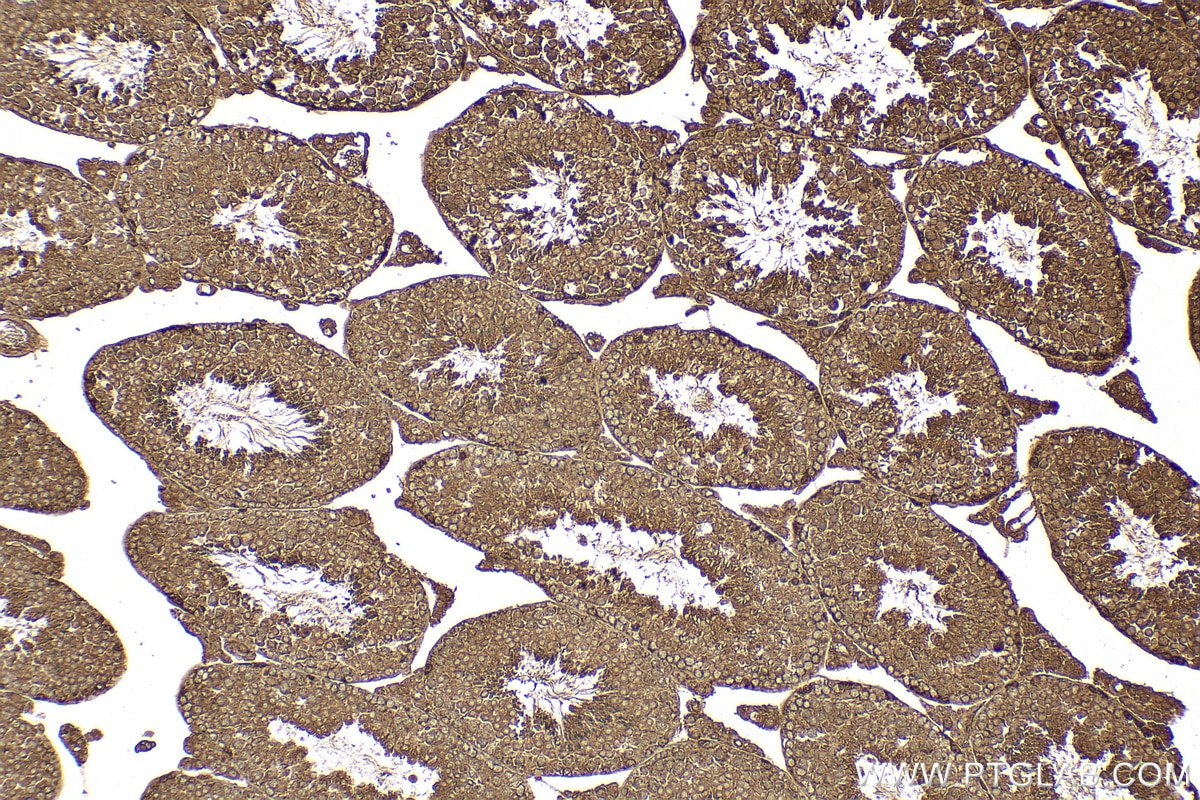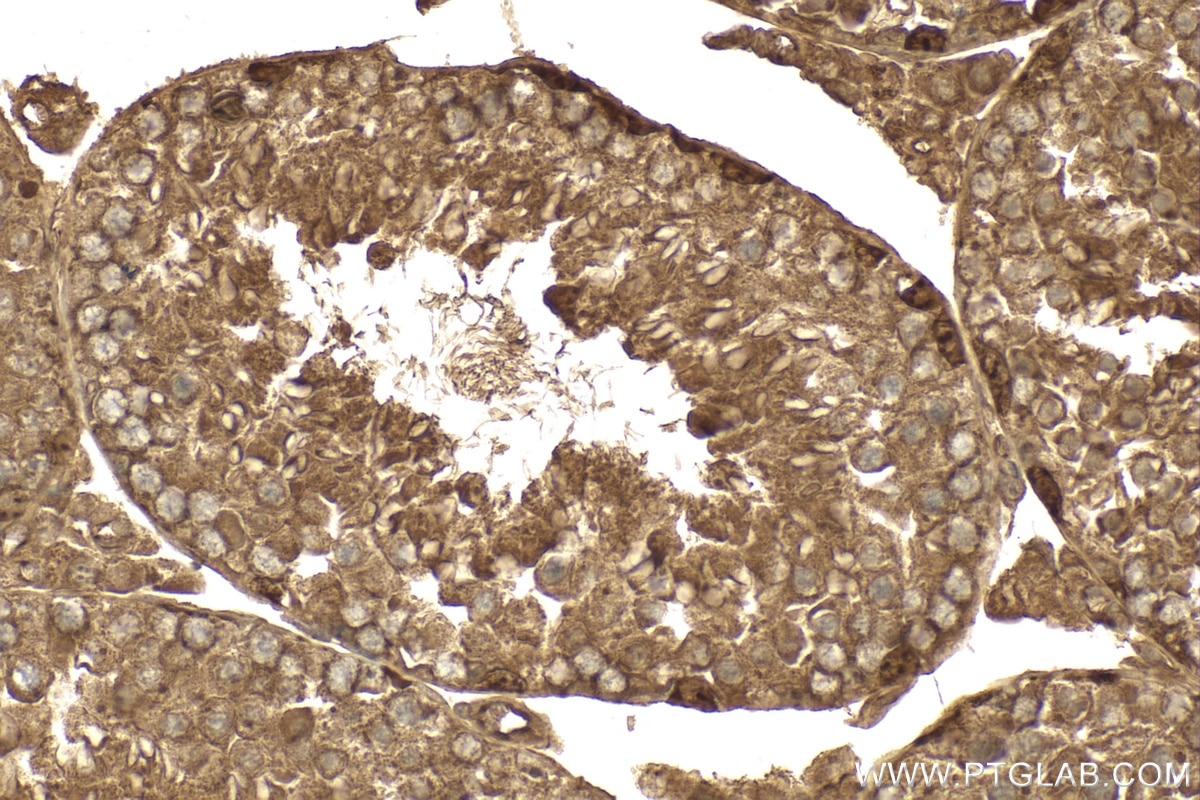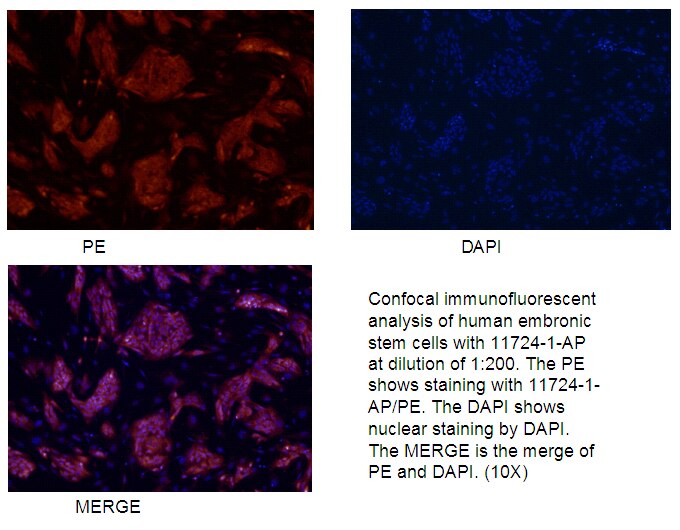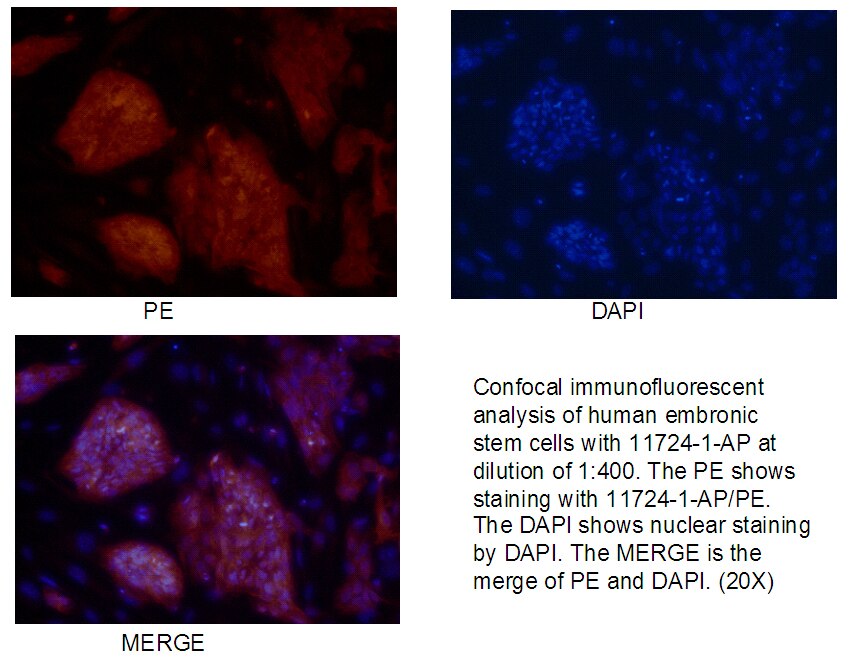Validation Data Gallery
Tested Applications
| Positive WB detected in | K-562 cells, NCCIT cells, mouse embryo tissue |
| Positive IP detected in | K-562 cells |
| Positive IHC detected in | mouse testis tissue Note: suggested antigen retrieval with TE buffer pH 9.0; (*) Alternatively, antigen retrieval may be performed with citrate buffer pH 6.0 |
| Positive IF/ICC detected in | human embronic stem cells |
Recommended dilution
| Application | Dilution |
|---|---|
| Western Blot (WB) | WB : 1:1000-1:8000 |
| Immunoprecipitation (IP) | IP : 0.5-4.0 ug for 1.0-3.0 mg of total protein lysate |
| Immunohistochemistry (IHC) | IHC : 1:50-1:500 |
| Immunofluorescence (IF)/ICC | IF/ICC : 1:20-1:200 |
| It is recommended that this reagent should be titrated in each testing system to obtain optimal results. | |
| Sample-dependent, Check data in validation data gallery. | |
Published Applications
| KD/KO | See 2 publications below |
| WB | See 29 publications below |
| IHC | See 18 publications below |
| IF | See 14 publications below |
| IP | See 2 publications below |
| RIP | See 1 publications below |
Product Information
11724-1-AP targets LIN28A in WB, IHC, IF/ICC, IP, RIP, ELISA applications and shows reactivity with human, mouse, rat samples.
| Tested Reactivity | human, mouse, rat |
| Cited Reactivity | human, mouse, rat, canine |
| Host / Isotype | Rabbit / IgG |
| Class | Polyclonal |
| Type | Antibody |
| Immunogen |
CatNo: Ag2312 Product name: Recombinant human LIN28 protein Source: e coli.-derived, PGEX-4T Tag: GST Domain: 1-209 aa of BC028566 Sequence: MGSVSNQQFAGGCAKAAEEAPEEAPEDAARAADEPQLLHGAGICKWFNVRMGFGFLSMTARAGVALDPPVDVFVHQSKLHMEGFRSLKEGEAVEFTFKKSAKGLESIRVTGPGGVFCIGSERRPKGKSMQKRRSKGDRCYNCGGLDHHAKECKLPPQPKKCHFCQSISHMVASCPLKAQQGPSAQGKPTYFREEEEEIHSPTLLPEAQN 相同性解析による交差性が予測される生物種 |
| Full Name | lin-28 homolog (C. elegans) |
| Calculated molecular weight | 209 aa, 23 kDa |
| Observed molecular weight | 28 kDa |
| GenBank accession number | BC028566 |
| Gene Symbol | LIN28 |
| Gene ID (NCBI) | 79727 |
| RRID | AB_2135039 |
| Conjugate | Unconjugated |
| Form | |
| Form | Liquid |
| Purification Method | Antigen affinity purification |
| UNIPROT ID | Q9H9Z2 |
| Storage Buffer | PBS with 0.02% sodium azide and 50% glycerol{{ptg:BufferTemp}}7.3 |
| Storage Conditions | Store at -20°C. Stable for one year after shipment. Aliquoting is unnecessary for -20oC storage. |
Background Information
LIN28 is one of the four key human factors (OCT4, SOX2, NANOG and LIN28) used to reprogram human fibroblasts to an embryonic stem (ES) cell-like state known as the induced pluripotent stem (Ips) cell[PMID: 20139967]. LIN28 is a marker of undifferentiated human embryonic stem cells and a cytoplasmic mRNA-binding protein that binds to and enhances the translation of the IGF2 mRNA[PMID: 21057460]. LIN28 has also been shown to bind to the let-7 pre-miRNA and block production of the mature let-7 microRNA in mouse embryonic stem cells[PMID: 22078496]. Affinity purified rabbit anti-LIN28 can be used to demonstrate pluripotency of ES and Ips cells, and to detect LIN28 transgene expression in the process of reprogramming. This antibody is a rabbit polyclonal antibody raised against full length LIN28 of human origin. The calculated molecular weight of LIN28 is 23 kDa, but the modified LIN28 is about 28 kDa.
Protocols
| Product Specific Protocols | |
|---|---|
| IHC protocol for LIN28A antibody 11724-1-AP | Download protocol |
| IP protocol for LIN28A antibody 11724-1-AP | Download protocol |
| WB protocol for LIN28A antibody 11724-1-AP | Download protocol |
| Standard Protocols | |
|---|---|
| Click here to view our Standard Protocols |
Publications
| Species | Application | Title |
|---|---|---|
Nat Genet Lin28a transgenic mice manifest size and puberty phenotypes identified in human genetic association studies. | ||
Nat Genet Lin28 promotes transformation and is associated with advanced human malignancies. | ||
Cell Stem Cell Human iPSC-Derived Neural Progenitors Are an Effective Drug Discovery Model for Neurological mtDNA Disorders. | ||
Cell Res Ythdc2 is an N(6)-methyladenosine binding protein that regulates mammalian spermatogenesis. |

